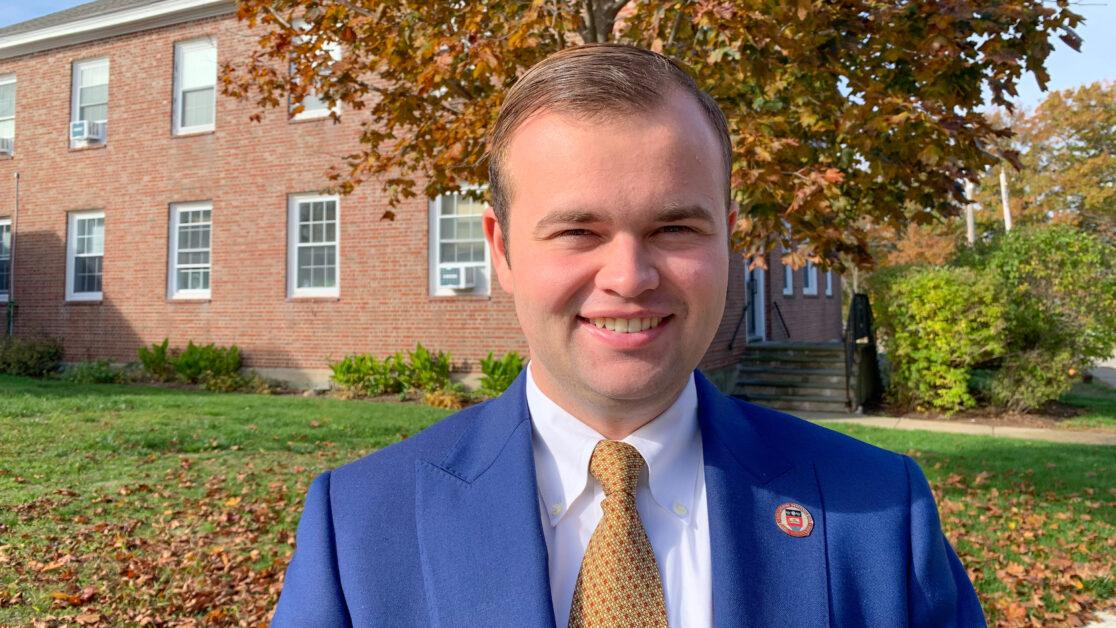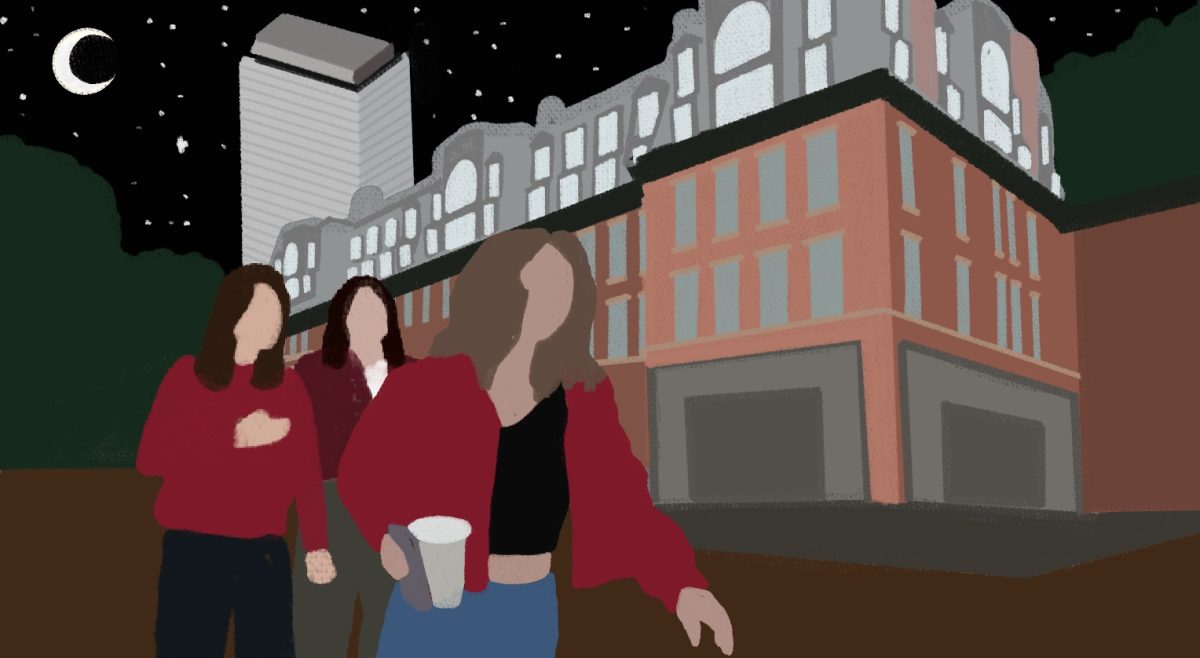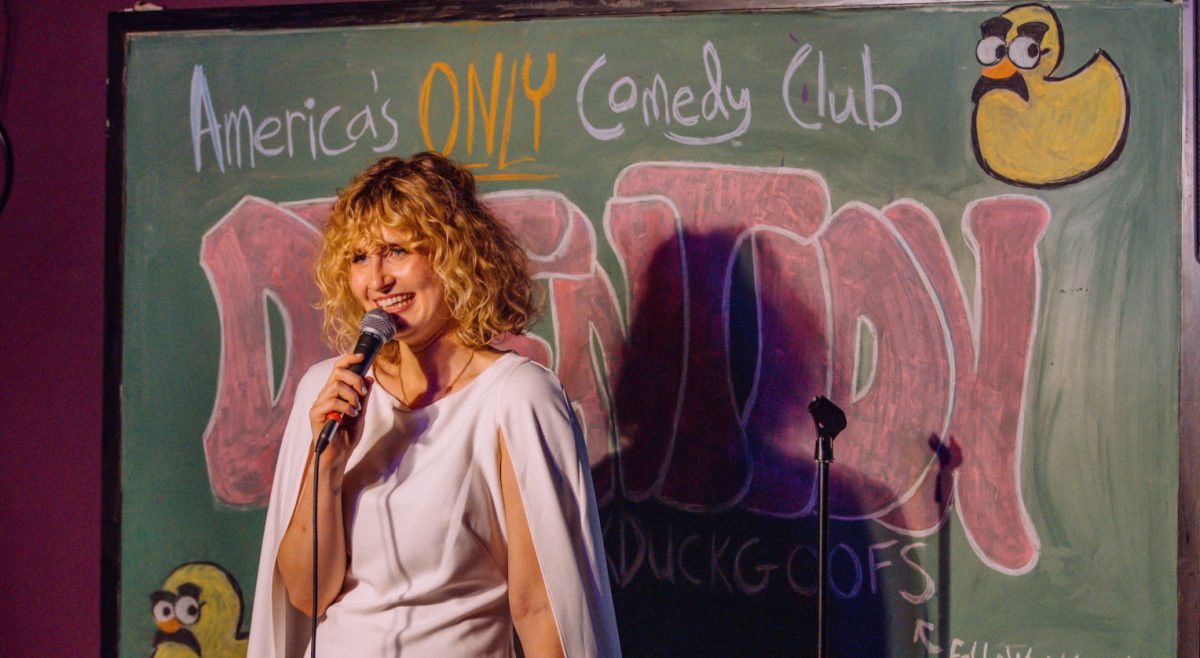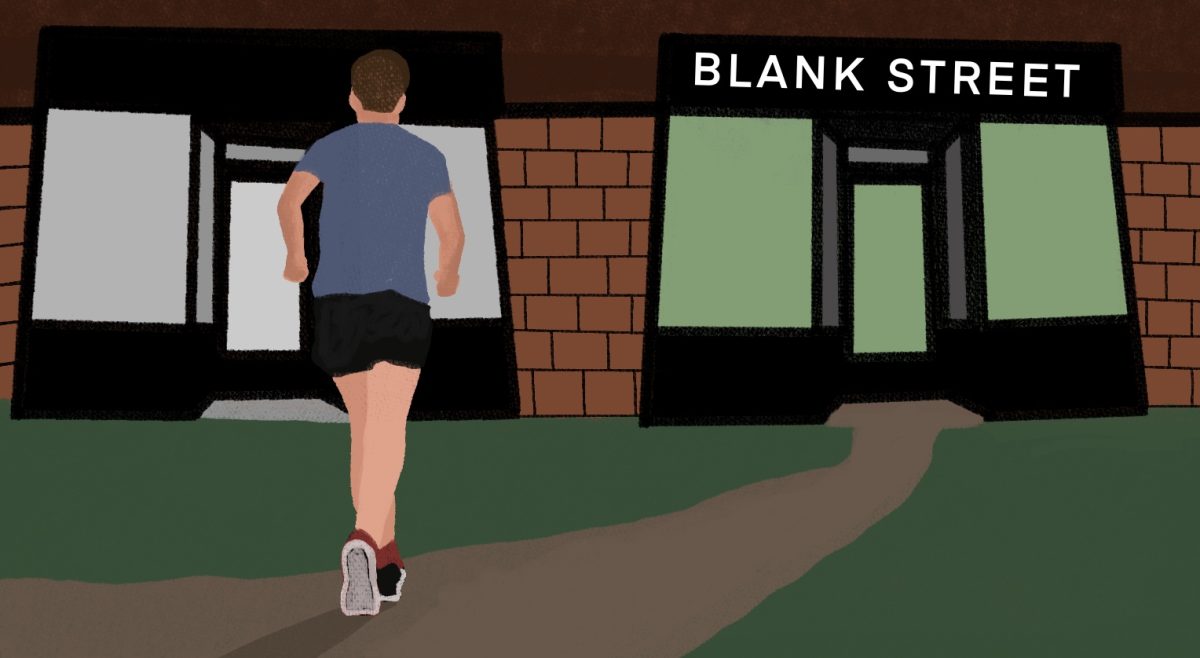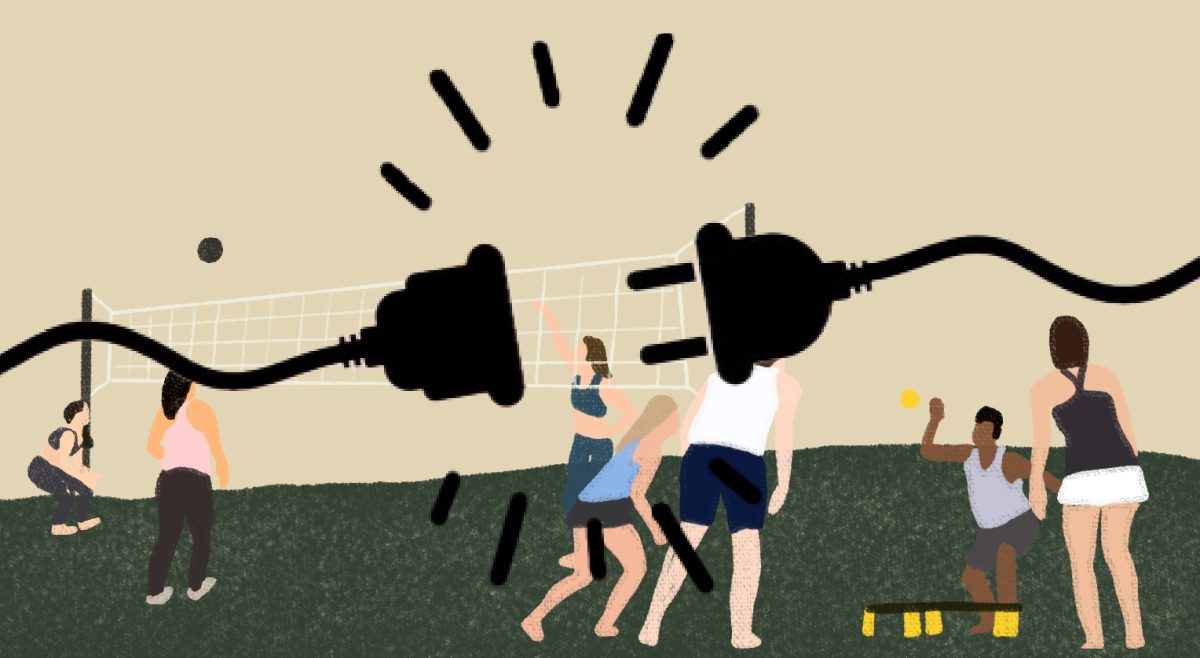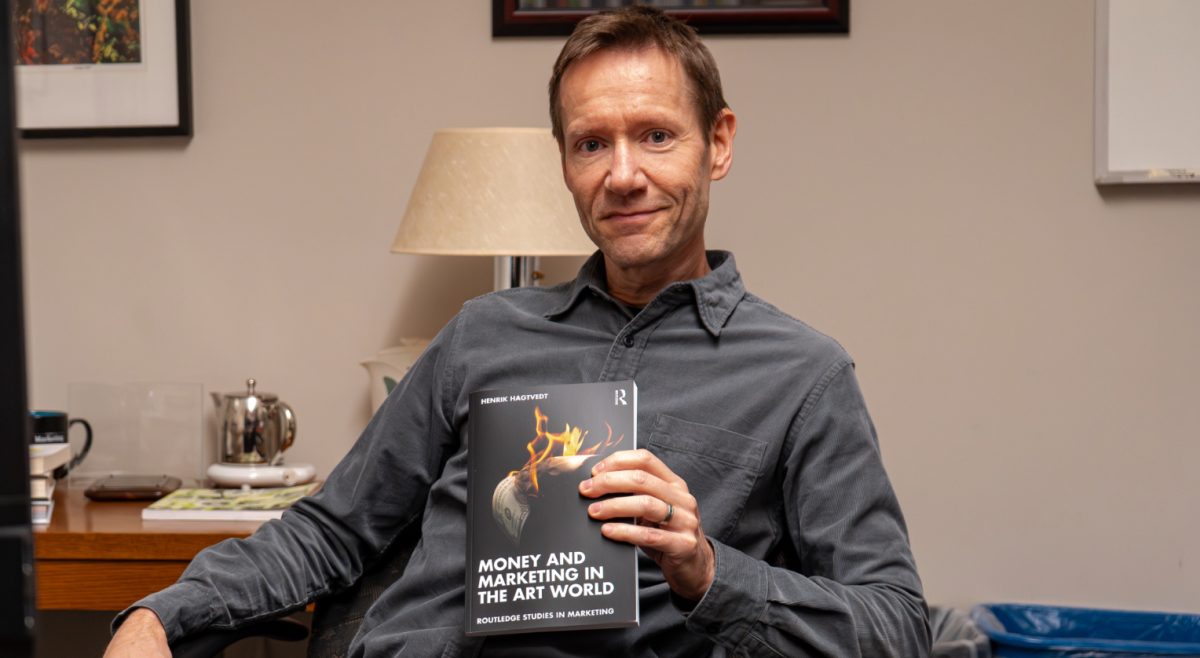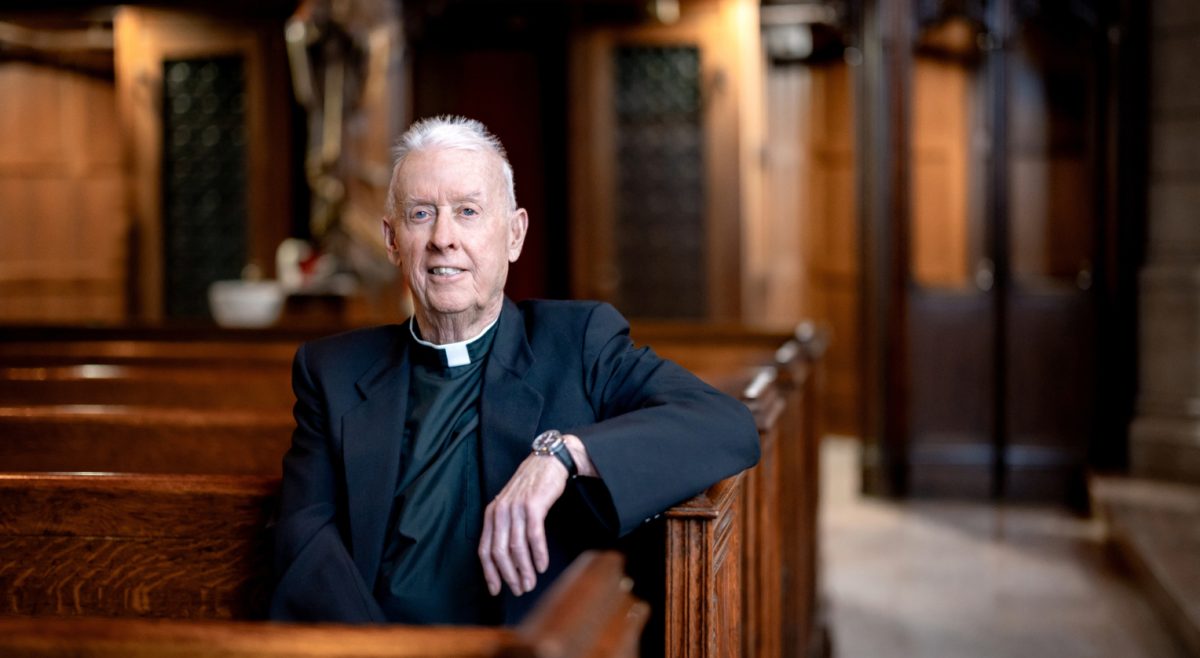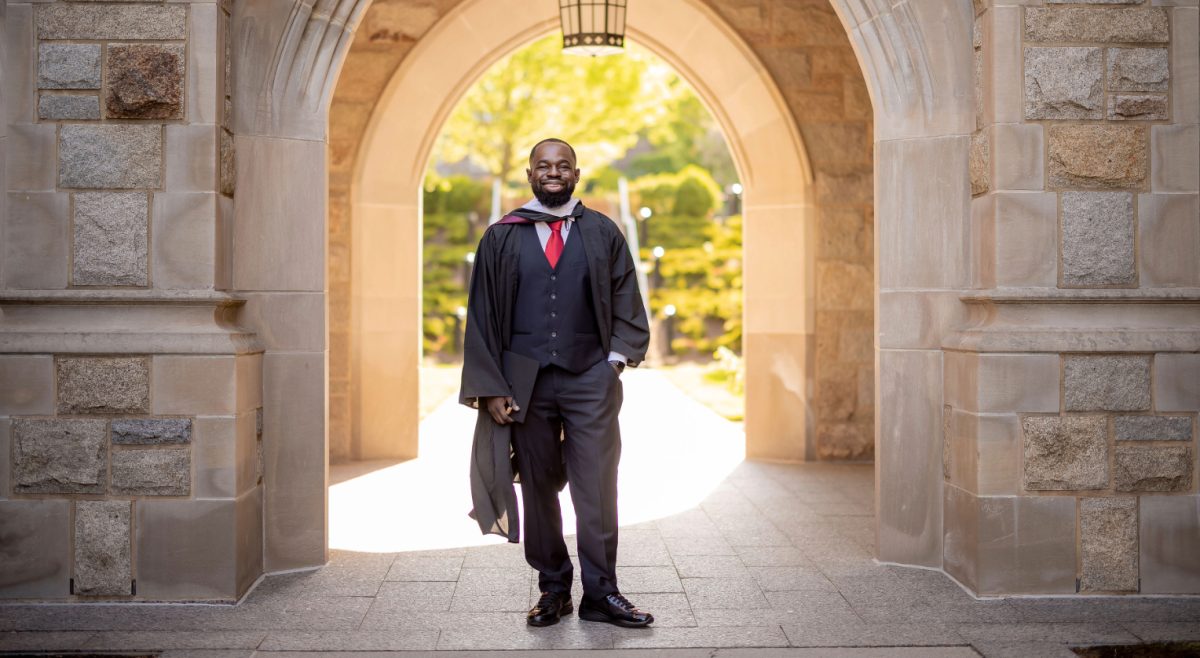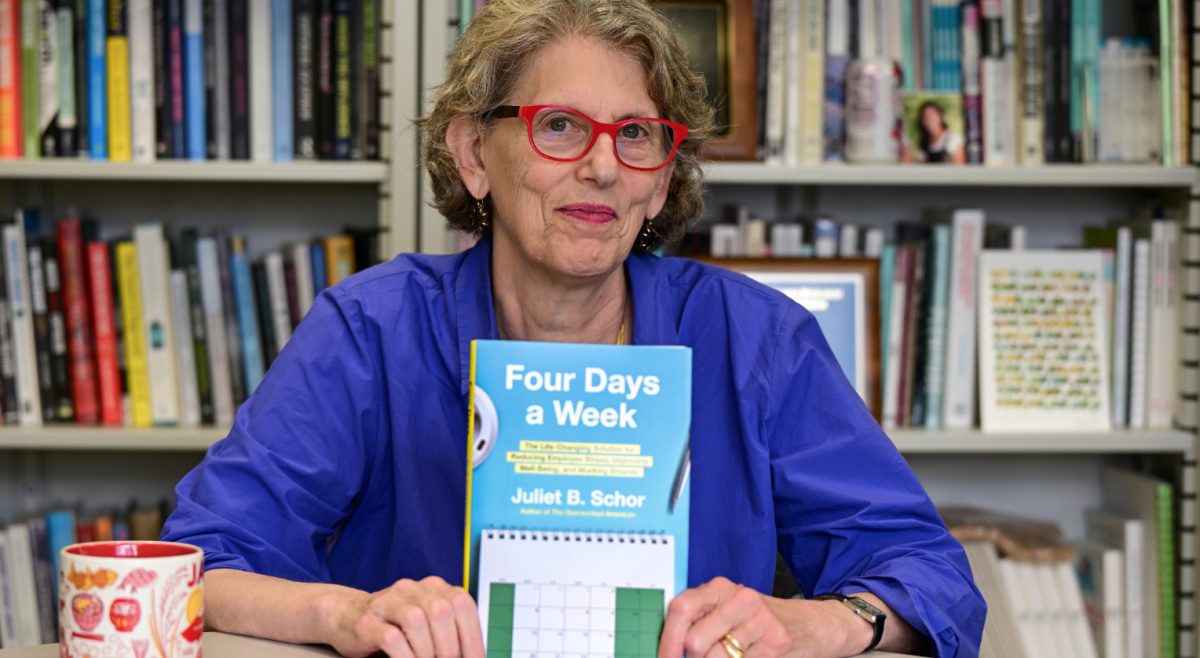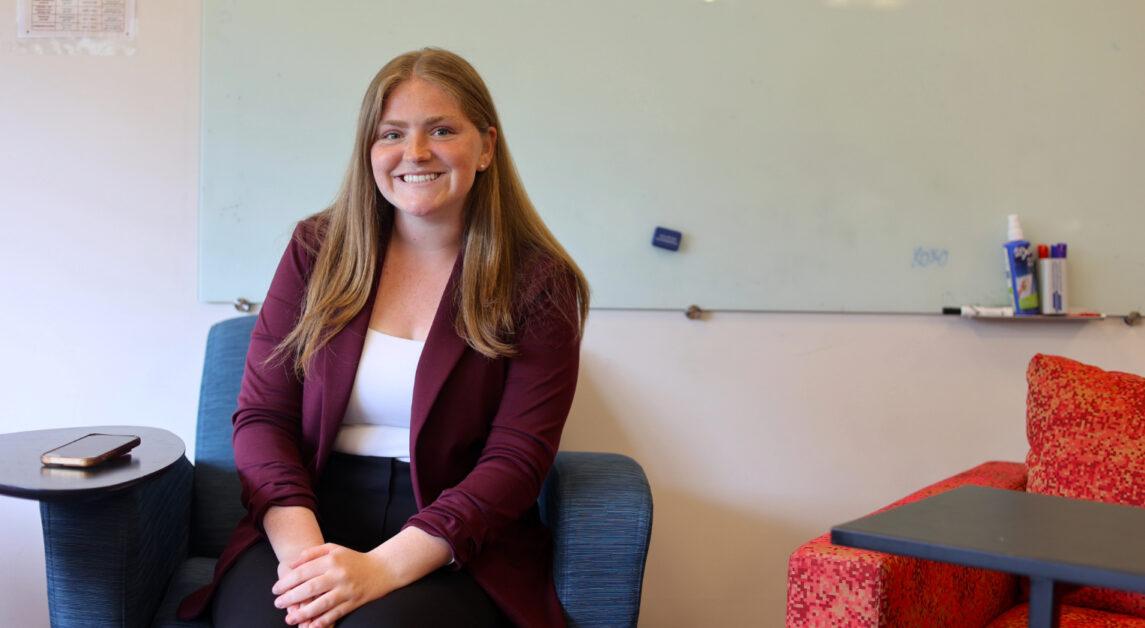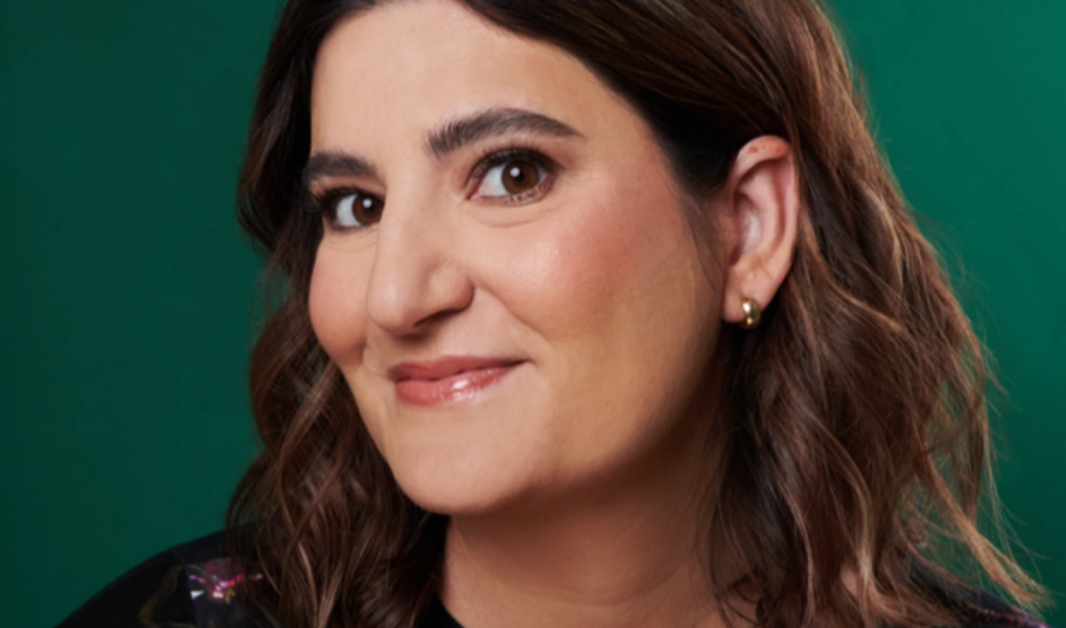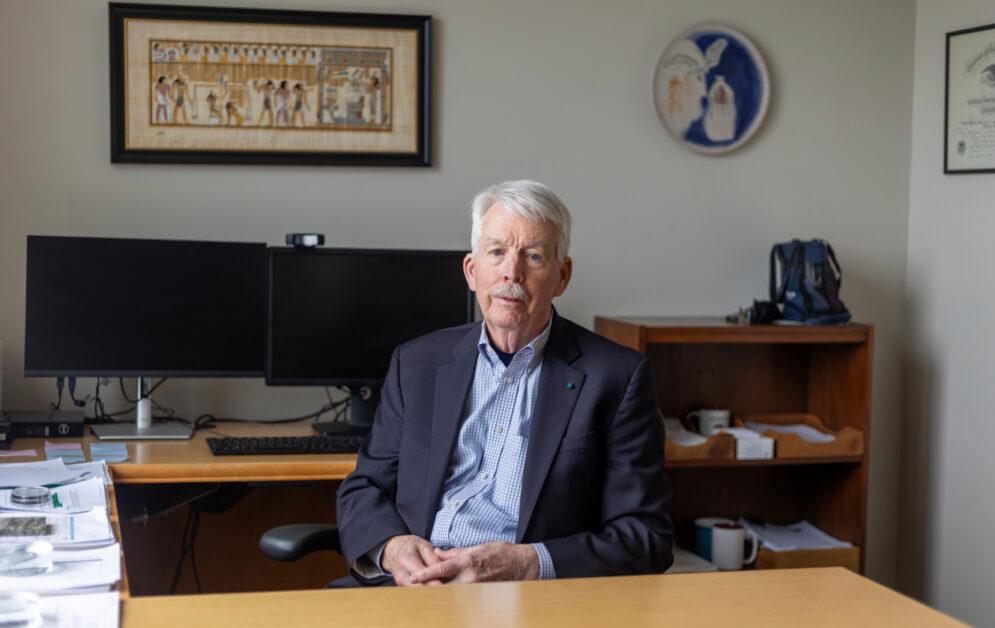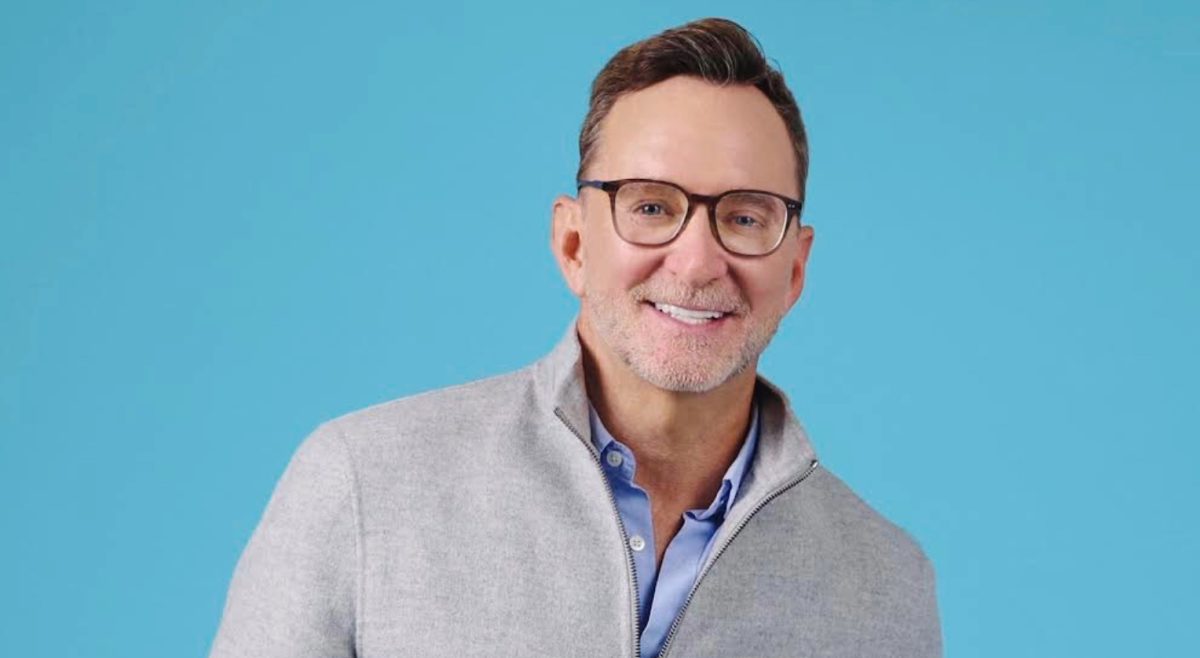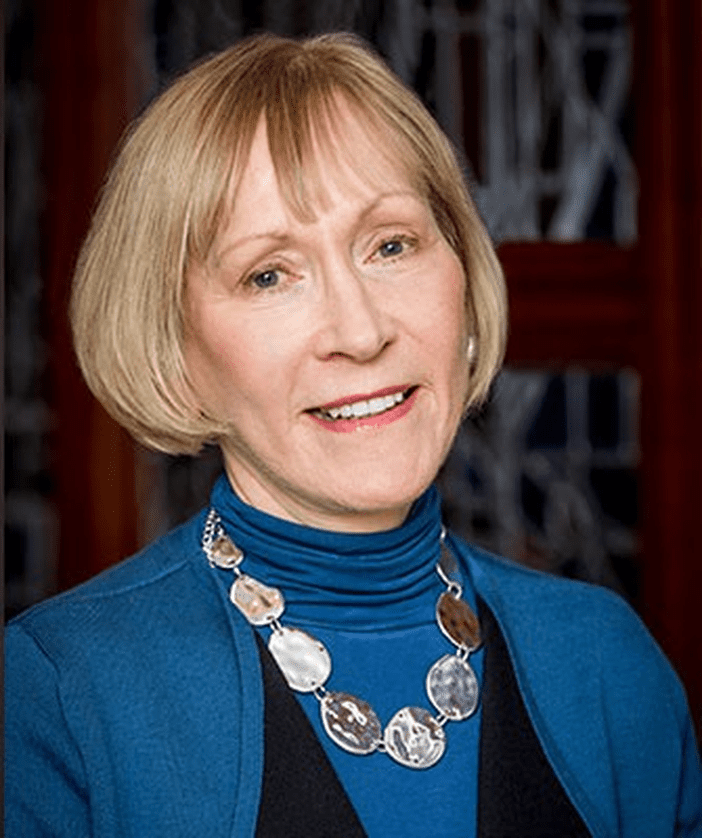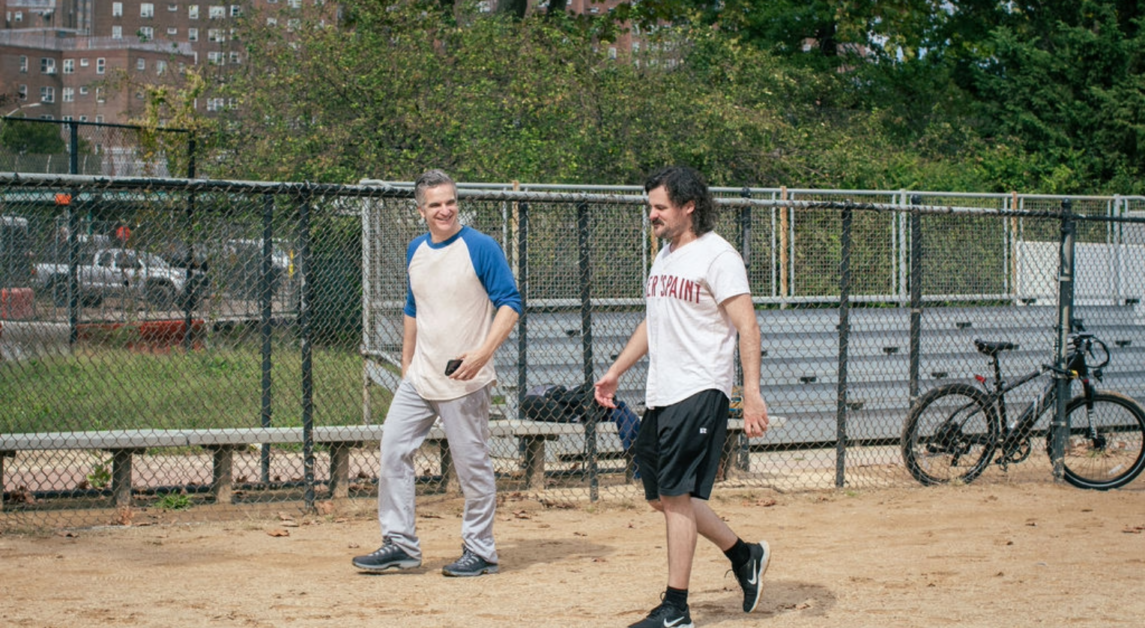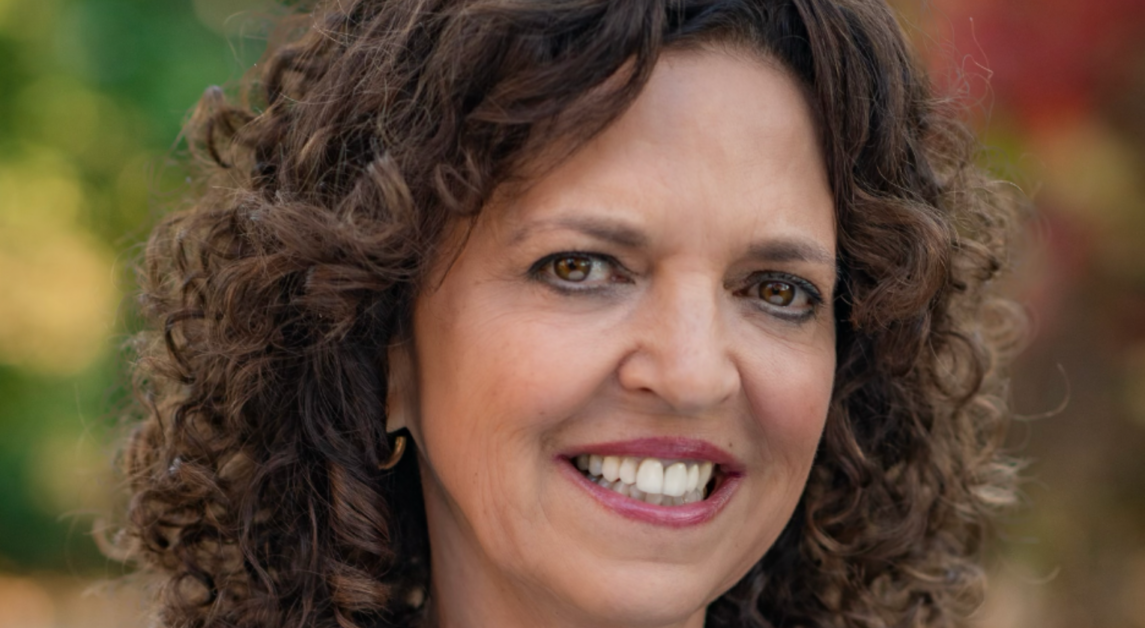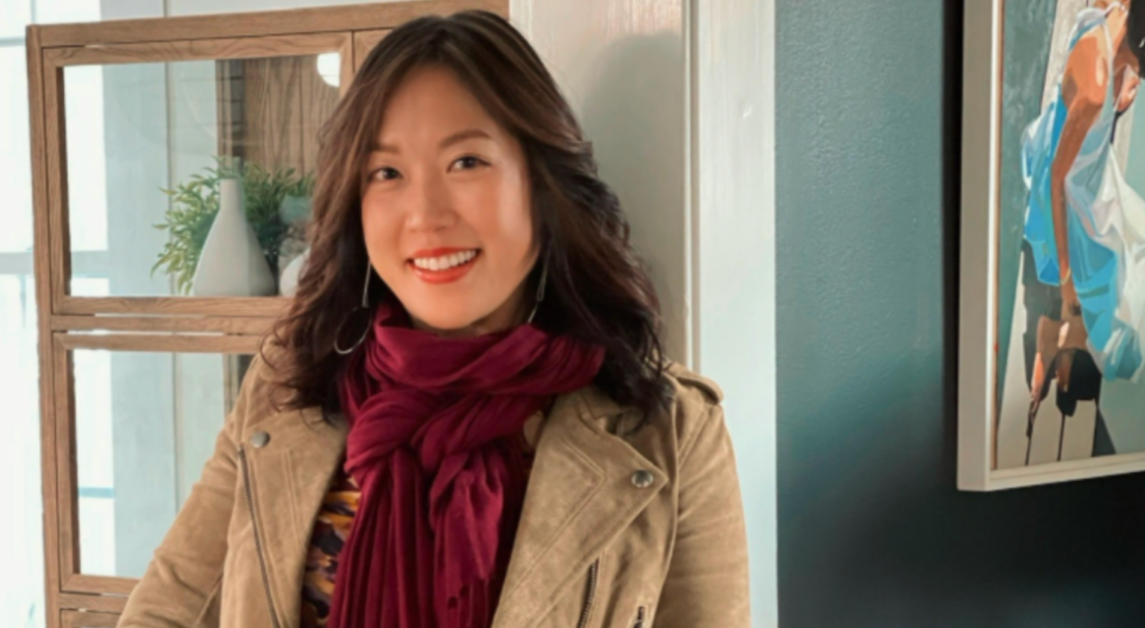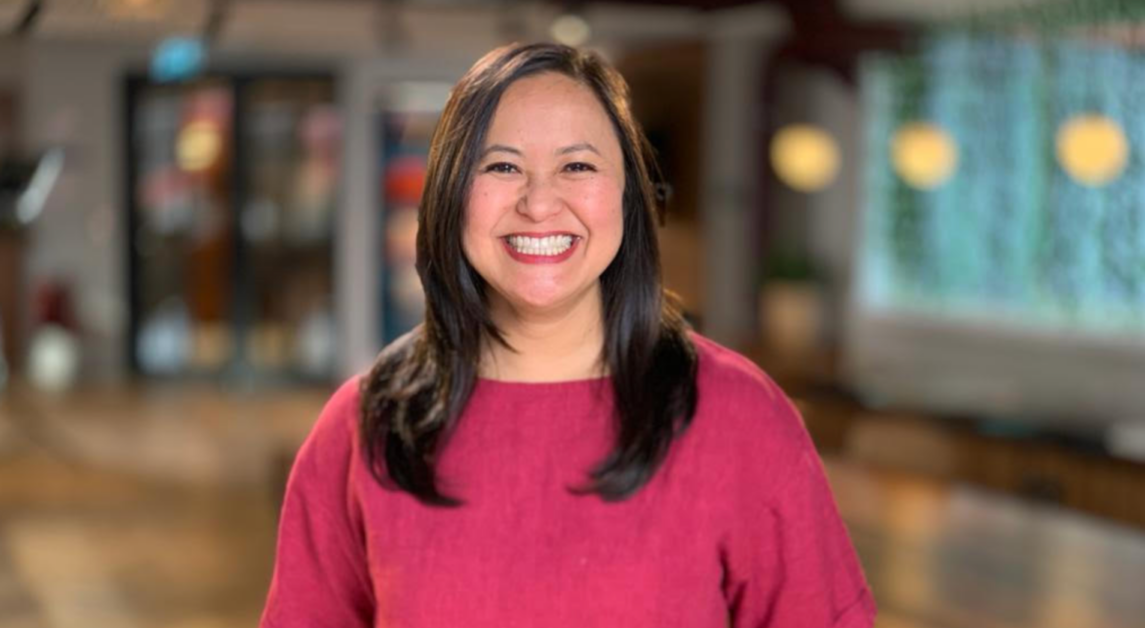On an average November day last year, Tim Smyth saw a couple of his friends at the Project Life Movement bone marrow drive on Gasson Quad and decided to get his cheek swabbed. Less than six months later, Smyth, BC ’22, would donate stem cells to an anonymous leukemia patient with about a 25 percent chance of survival.
Project Life partnered with Gift of Life Marrow Registry to host an on-campus drive last November where students could volunteer to have their cheeks swabbed and join the donor registry. Luke Kuechly, former Boston College football player and former linebacker for the Carolina Panthers, returned to campus to help organize and lead the drive along with Meghan Heckelman, the director of student initiatives of UGBC and the campus ambassador for Gift of Life.
Smyth, who grew up in South Boston and attended BC High School, studied political science and Mandarin at BC.
Before the drive last year, Smyth said he was not planning to donate.
“I was just a passerby on Gasson Quad … and some of my friends were swabbing their cheeks—so I figured I may as well do it too,” he said. “I submitted my saliva to the kid that was collecting it and then walked off, and I didn’t think about it.”
Just a few months later, in February, Gift of Life notified Smyth that he was a match with a 37-year-old man diagnosed with leukemia.
“They called me, they emailed me, they texted me, they reached out to me on Facebook, Instagram,” Smyth said. “They were like, ‘Tim, you’re a match with this guy.’ I open my phone to a million messages, and I’m like, ‘What is this?’ And I was like, ‘Oh yeah, that’s the cheek swab.’ ”
Almost 800 BC students swabbed their cheeks last year said Ann Henegar, Project Life Movement’s executive director. Of those who joined the registry, 15 BC students have matched with an anonymous patient, which Henegar noted was a high number for just one year.
After hearing about the match, Smyth said the decision to donate was easy.
“I thought it was really awesome that I was able to give even a little bit of myself to someone that was dying,” he said. “When they called me on the phone, they explained the situation to me, and how he had, I think, a 25 percent chance of living if I did not give him my stem cells.”
Though Gift of Life keeps patient information anonymous and Smyth knew almost nothing about his matched patient, Smyth said he was still eager to donate.
“Part of the beauty is doing it totally anonymously and not knowing,” Smyth said. “Just trusting in God that this organization is doing this for good and truly helping save lives.”
Matches are rare, Smyth said, and the speed at which he underwent the process was also unusual.
“I think another thing that was unique about my case is that people are usually on the registry to donate for years, and I was only on it for three months,” he said. “Some people spend their whole lives on it, and then 20 years later, they get a call that they’re a match for somebody.”
Even after Gift of Life discovers a match, he said they still need to draw the donor’s blood to certify compatibility with the patient, ensuring the procedure will work.
Gift of Life scheduled Smyth’s date procedure for April 28, and about three or four weeks before the procedure, they also asked him to go to the Dana-Farber Cancer Institute to check his vitals and decide where in his veins they would draw the stem cells from.
A traveling nurse also stopped by his dorm in Rubenstein Hall every morning for the 10 days before the procedure, he said.
“I had to get two injections every morning into my side to produce more stem cells in my body, so I was able to produce more on donation day,” Smyth said.
On donation day, Smyth entered the hospital around 7 a.m. and left around 2 p.m. He said the actual procedure was not labor-intensive, considering how rewarding the result can be.
“For stem cell donation, it’s like donating blood, except it’s in both arms for, like, five hours,” Smyth explained.
For those five hours, a machine steadily drew stem cells out of Smyth’s arms while he lay in a hospital bed.
“There’s this machine to your side that collects it all and puts it into this bag,” he said.
Smyth remained conscious during the entire procedure and said while it was somewhat uncomfortable, the process did not hurt.
Jack Bracher, BC ’22 and close friend of Smyth’s, made sure Smyth did not go hungry during the procedure.
“I visited him in the hospital and brought him a couple slices of Pino’s while he was undergoing the operation,” Bracher said.
Bracher said he joined the registry when the organization came to BC and learned he was a match in the summer of 2021. Fortunately, he said his matched patient went into remission and no longer needed stem cells.
When looking back on the days leading up to his procedure, Smyth explained how busy of a time it was in his life. Just one week prior to undergoing the procedure, Smyth had run the Boston Marathon.
“My senior year was an amazing time for me spiritually, emotionally, physically,” Smyth said. “The first week, I led Kairos. The second week, I ran the Boston Marathon. And then the last week, I donated stem cells.”
While he admitted the month was exhausting, he spoke to the value of closing his BC experience with those three events.
“I felt, you know, really good about myself, and I was ending my time at BC on a really high end,” Smyth said.
Smyth added that the support from his friends was incredibly helpful during that monumental time.
“The support from my friends throughout all three of those big events in my life in those three weeks was also amazing and speaks to the BC community,” he said.
Smyth said Gift of Life played a vital role in the entire process, noting that it covered all of his transportation costs, checked in on him at every step of the process, and gave him a $200 gift card on the day of his procedure to purchase food or other necessities.
Regarding the results of the procedure, Smyth said Gift of Life will update him on how the patient is doing around January. While Smyth still does not know anything about the man to whom he donated, he maintains that the experience is extremely valuable regardless of the patient’s background.
“He could be some billionaire tech tycoon living in Silicon Valley or he could be a father of five in rural Indiana,” Smyth said. “But it didn’t matter who he was. I just trusted that Gift of Life was doing what they needed to do to save a person’s life.”
Henegar explained that she initially got involved with the Project Life mission after her close coworker lost his wife to leukemia.
“People do not know these organizations exist until a loved one needs a stem cell transplant,” she said. “And then that is all they can think about after that.”
While it is relatively an easy process to donate stem cells, it is much more difficult for leukemia patients to obtain them.
“The nurse, on donation day, said ‘You can’t buy this in a store,’ ” Smyth said.
This week, on Nov. 3 and 4, Project Life and Gift of Life Marrow Registry are hosting their annual drive on the BC campus. Smyth will be returning to the BC drive this November to promote the cause and encourages students to stop by, get their cheeks swabbed, and join the registry.
“You don’t have to be a Mother Teresa to save a life,” Smyth said. “You can literally give five hours of your life to save someone.”
Henegar echoed this sentiment, emphasizing how easy it is for students to join the registry.
“When we partner with groups and clubs and universities, we’re not asking those students to raise money, or to plan a 5k, or to pass the bucket at a game,” Henegar said. “We’re just asking them to give us the opportunity and the pathway to educate their peers on the importance of joining the registry.”
Bracher also urged students to consider BC Jesuit values when deciding whether to join the registry.
“It’s such a rare instance that you have the privilege of being matched with someone and you literally have the opportunity to save their life,” Bracher said. “And we talk about being men and women for others at BC all the time. There’s no better representation of being a man or woman for others than doing what you can do to save another person’s life.”
Looking back on the impact the quick decision to swab his cheeks had on his life, Smyth said he still feels amazing about his choice.
“It was just a really amazing experience and something I never would have thought I would be doing in my life,” he said. “But, you know, I figured it’s such a little sacrifice that could go a long way.”

